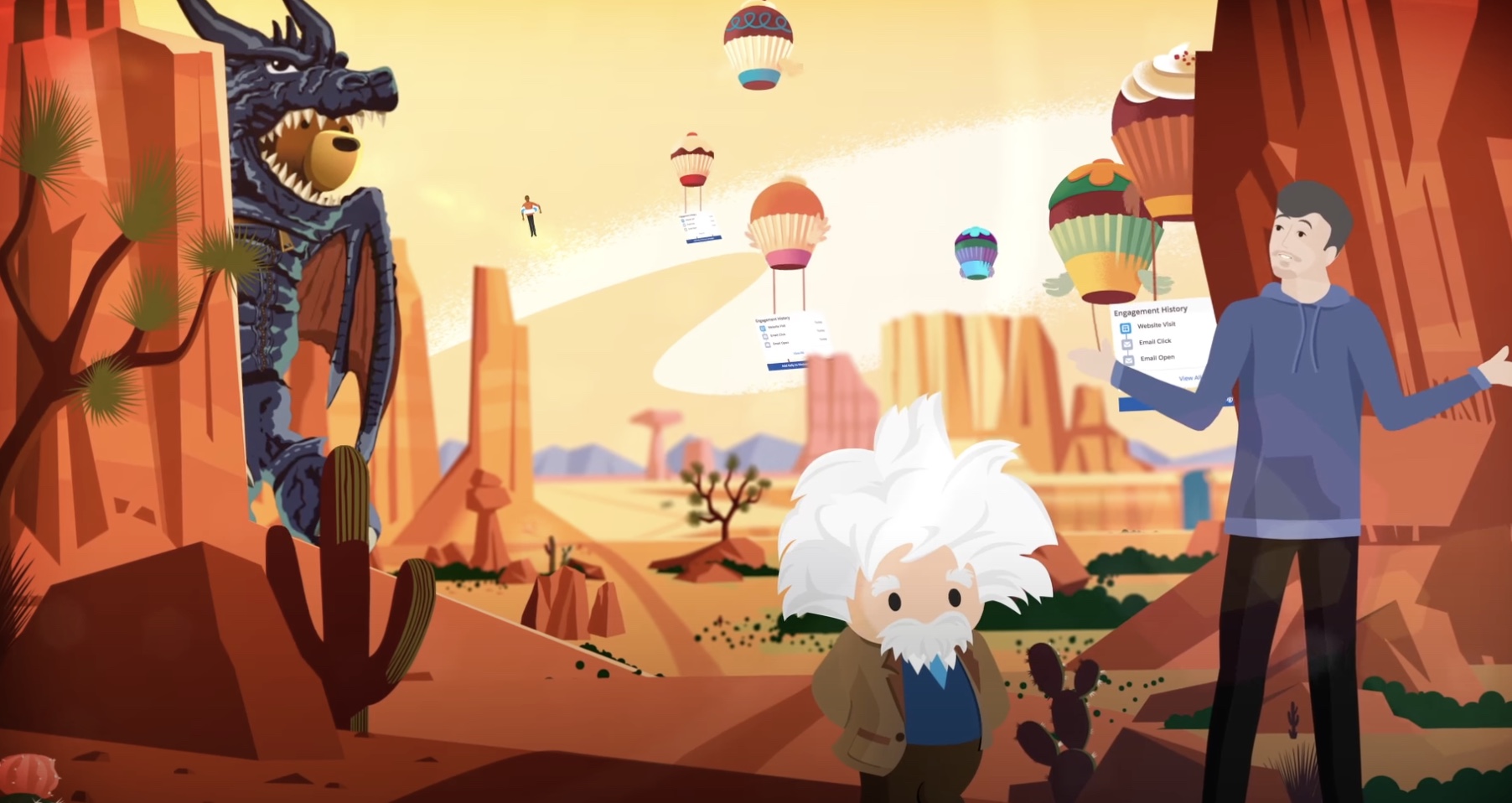ChatGPT has been all the rage in tech circles recently. In response, Salesforce is launching Einstein GPT, billed as the world’s first generative AI CRM technology, and likely the first vendor to put a price tag on the sort of tech OpenAI has helped popularize online with free usage.
Einstein GPT delivers AI-generated content across every sales, service, marketing, IT and commerce interaction, at hyperscale. In a company demo broadcast from Salesforce’s TrailblazerDX23 event, capabilities mainly showed off with the sort of conversation many have become recently familiar with via ChatGPT.
Salesforce stressed that Einstein GPT is not a ChatGPT clone but a combination of generative models – including ChatGPT 3.5 – alongside Salesforce’s Einstein proprietary IP. At the same time, the company announced OpenAI as its initial launch partner for the tool, with Salesforce powering the research lab’s go-to marketing efforts.
“Customers have a genuine interest in driving business outcomes, not from a hype perspective,” said Clara Shih, CEO of Salesforce’s Service Cloud. In response to whether ChatGPT accelerated the roll-out of Einstein GPT, the chief exec underscored they were “responding to market demand.”
Salesforce also maintained that company data – such as proprietary source codes and software – would be safe in using Einstein GPT, whilst highlighting its generative coding capabilities, as also available in ChatGPT. Like with the OpenAI tool, such data is pulled from open-source resources, but this doesn’t mean company IP will be pulled into public datasets.
“Einstein GPT is connected to data clouds, (with clean) data spaces to mark data as private,” according to Jayesh Govindarajan, Salesforce’s SVP Data Science and Engineering.
Salesforce a safeforce?
Coding brings to mind an overlooked lawsuit lost amidst all the chatter about Bing, Bard and the like, as recently filed against Microsoft, GitHub and OpenAI regarding their generative coding system, Copilot. The lawsuit argues the system uses code from GitHub repositories without complying with open-source licensing terms, and that it unlawfully reproduces the plaintiffs’ code.
ERP Today has contacted Salesforce for comment on how Einstein GPT gets around this possible IP issue, not yet received at time of writing.
The company demo itself was more concerned with issues of safety regarding chatbot tech. In a text conversation between a sales rep and a customer, dialogue was generated by the former to include small talk about the day’s weather in the customer’s region.
Salesforce stressed the phrase “human in the loop” a few times to reassure clients that their tool won’t spout unsavory lines pulled from the unsavory climes of the open web. For one, adjust and edit buttons can be found beneath the CRM’s chat box.
The advantage here comes from Einstein GPT not being open-source as ChatGPT and the upcoming Google Bard both are. “This market is ours to win,” Salesforce believes accordingly.
Enterprises though can plug in AI frameworks of their own, and some may find it more cost-effective to train their own datasets than filter it through a paid Salesforce proposition. Cunning businesses will also probably already know that there’s more to generative AI than chatbots; plug in the tech to digest their own reams of data, and the possibilities in automation are endless.
Companies that rely on remote work and/or large teams will be interested to know that ChatGPT for Slack was also announced at TrailblazerDX23.
Other news from the Salesforce event included a $250m generative AI fund, initially investing in four companies. One of these is Anthropic, a ChatGPT rival which recently saw a $400m investment from Google Cloud.
Einstein GPT is not yet out to market, with pricing and release date yet to be announced.





